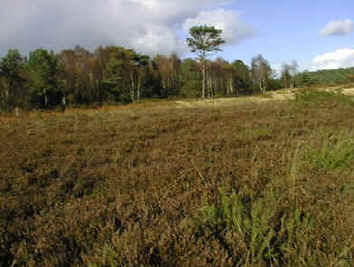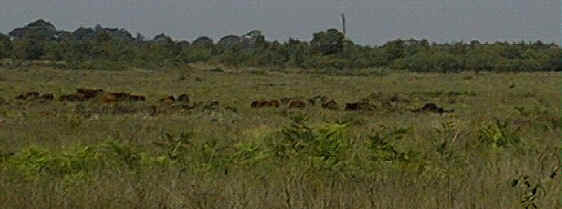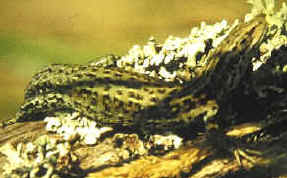

Without active management, heathland areas cannot survive. Heathland
management must satisfy three main objectives:
1. Control of trees, scrub and bracken
2. Production of age diversity in the vegetation
3. Specific requirements of rare species
Control of Trees, Scrub and Bracken
Lowland heathland is an intermediate stage in a succession from bare ground to woodland. If left unmanaged, tree seedlings grow up and in time, shade out the underlying heath vegetation with the consequent loss of the unique heath flora and fauna.

Cattle are used as a heath management tool to control the growth of tree seedlings.
Production of Age Diversity in the Vegetation
Heathland itself also passes through various successional stages, from pioneer through to old heathland. This is due to structural changes in the vegetation as it ages. Heather (Calluna vulgaris) has different growth forms (and as a result, differing degrees of dominance over other plant species) at different stages of its lifecycle. This leads to variations in the composition of the heathland flora. Heathland may therefore often look very different at different stages in its succession.
The greater the age variety of Heather present on a heathland, the more diverse the
fauna becomes. This is due to the increase in the number of different available microhabitats. One of the most
important considerations in managing a heathland habitat is therefore to ensure age
diversity in the vegetation, in order to increase the animal diversity.
The Specific Requirements of Rare Species

Common Lizards like to bask in the sun on heathlands.
Many rare animals are found on heathlands. Sites where they occur need to be managed specifically to cater for their needs. This may in practice lead to conflicts between the management requirements of individual species and the need for overall successional management of the area. Balancing these two aims can be difficult and it may not be possible to maintain dense populations of a rare species in conjunction with long term management of the overall heathland. Choices have to be made.
Can't find what you are looking for? Use Search
This website is hosted by the Offwell Woodland & Wildlife Trust and managed by Quartz Productions